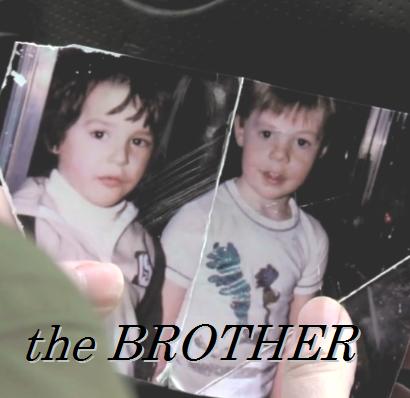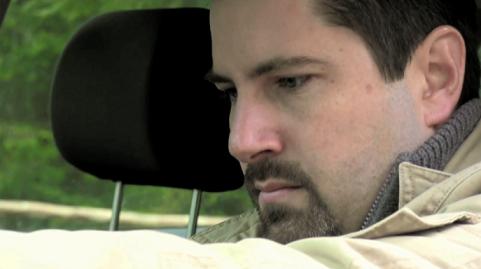The Brother
 Director: Michael Stevantoni
Director: Michael StevantoniExpected Rating: PG-13 due to a few instances of language
Distribution: Self-Distributed
Budget: $2,000
Genre: Drama
Running Time: 24 minutes
Release Dates: January 2013
Website: Click Here
Trailer: Click Here
Critique Issue: #84 (02/13)
Critiqued By: Monika DeLeeuw-Taylor
Final Score: 8.7
Mark is living his dream in the big city and everything is going well, until he receives a call from his estranged mother. She tells him that his brother Danny is dead, but because she didn’t know how to reach Mark, Danny’s funeral has already passed. Mark decides to return to his small hometown to make peace with both his brother and his past.
http://www.youtube.com/watch?v=9hKjd4Ih8Zs
Content
From the beginning of the film, it is obvious that Mark has not seen his family in a long time. Even when he returns home, his mother is happy to see him, but his father isn’t. It is revealed that, after Mark left town, he changed his name which made it difficult for his mother to track him down.
Warning! Spoilers Ahead!
It isn’t until halfway through the film that the audience finds out why Mark left. He had wanted desperately to leave his hometown for the big city and worked three years saving up money. When his father stole the money, Mark was so angry that he left town and changed his name. In one scene, he confronts his father about this, but his father seems unapologetic. Mark is still angry about the fact that, when he got to the city, he had to work three jobs and sleep on friends’ couches just to make ends meet. Not much detail is given about how much money was taken or why so, in my opinion, it seems like a trivial reason for Mark to be so bitter toward his father, let alone why he also cut off contact with his mother and brother.
Mark later finds out that his brother was found dead in a river after probably having jumped to his death. Mark later confronts his father, intent on finding out why Danny killed himself. Apparently, what had pushed Danny over the edge was something that their father had told him – specifically that being with one man didn’t make him gay, and that he could see a counselor. This statement infuriates Mark, but I couldn’t help thinking that, while this isn’t the most compassionate thing a disapproving dad could say to his gay son, it’s not exactly something that should make him want to kill himself. In fact, coming from this very rough-around-the-edges father, it sounds downright compassionate.
The film does have a good ending, however. While in his hometown, Mark had hooked up with an old girlfriend, who was justifiably angry at him for leaving. But once he’s safely back home in the big city, Mark calls her. It’s a good sign that he is going to make an effort to connect with his past and not just brush it off.
Visual
The Pacific Northwest is a beautiful area, and this film took full advantage of the scenery. It was chock-full of all kinds of beautiful wide shots of trees, mountains, water – absolutely breathtaking views. There were also a lot of nicely-framed shots with objects in the foreground, making good use of the rule of thirds.
Another interesting choice was to bookend the movie with black and white images. All of the scenes of Mark in the city are in black and white, while the hometown scenes are in color. I’m not sure why the choice was made – whether it was just for aesthetic purposes, or if there was a deeper meaning, such as Mark seeing his hometown more clearly, or even a subtle homage to The Wizard of Oz, perhaps? Whatever the reason, it was a nice touch.
There were very few visual issues. I only noticed one instance where white balance may have been off – when Mark is at Danny’s grave, the wide shots looked a bit too blue-tinged and didn’t quite match with the close-ups. Also, there was a scene with Mark and Bailey at his hotel where his face was evenly lit, but half of her face was in shadow with no fill light. This could be a deliberate choice, since they argue in this scene, but it seems odd since the lighting doesn’t match.
Audio
The score in this film is beautiful. There is an underlying slow and somewhat mournful guitar piece that crops in throughout. It gives a good hint of what is about to transpire in the beginning, since the audience can only hear one side of the phone call Mark receives from his mother, but with the music, the viewer can already tell that something is wrong. When no music is playing, there is great sound design of nature in the background.
There were only a couple audio issues. In the scene in which Mark sees his former girlfriend again, he says her name, “Bailey?” but his audio was so quiet that I couldn’t tell what he was saying. Also, in the scene in which she and Mark argue, some of her lines sound as though they were ADRd because the reverb doesn’t quite match. Finally, in the scene in which Mark confronts his dad, there is one line that the father says that only came in through the left channel.
Budget
This film’s budget of only $2,000 was spent on color correction, minor video effects, post audio mixing, pay for some of the actors, a microphone, travel costs, ADR, and props. There’s not much to say about budget except that I want to know this director’s connections! $2,000 is a good price for even a 10-15 minute film, let alone a full half-hour, so I’m very impressed!
Lasting Appeal
“The Brother” is an emotional drama. It deals with the difficult themes of family betrayal, sexuality, resentment, and suicide. If any of these hit home, it may even be difficult for some viewers to watch. However, I do think it is a story that needs to be told, and would definitely recommend this film.
Final Comment
It’s never easy to confront family, especially when you feel they have wronged you. It’s never easy to confront your own sexuality, especially when other may not approve. And it’s never easy to confront your past, especially when you’ve worked so hard to put it behind you.
If you or someone you know is considering suicide, call the National Suicide Prevention Lifeline at 1-800-273-8255
|
Breakdown
|
|
|
Content
|
7.1 |
|
Visual Look
|
9.5 |
|
Use of Audio
|
9.3 |
|
Use of Budget
|
9.7 |
|
Lasting Appeal
|
8.3 |
|
Overall Score |
8.7 |
| How do we critique films? Click Here To See. | |


